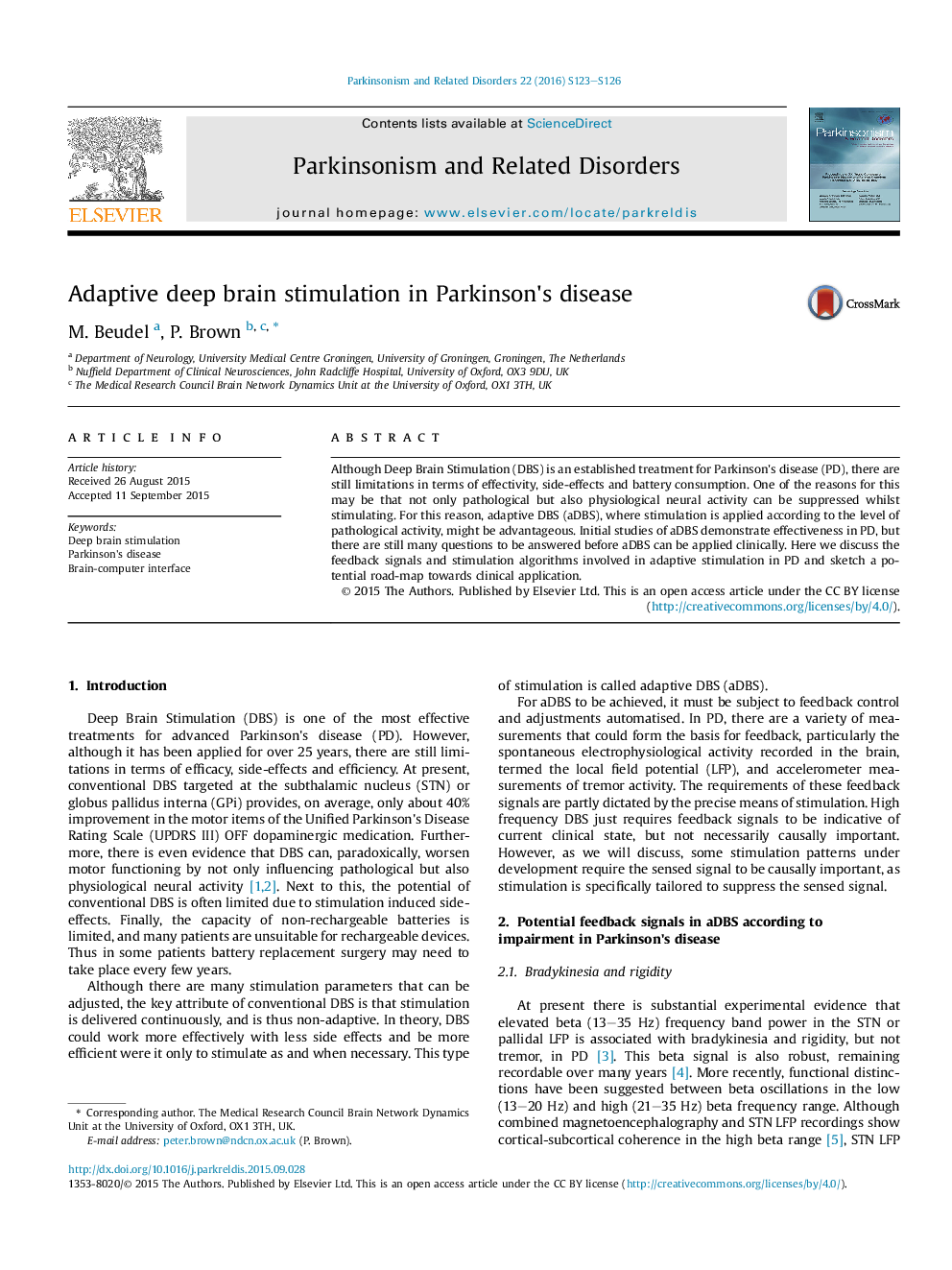| Article ID | Journal | Published Year | Pages | File Type |
|---|---|---|---|---|
| 10745100 | Parkinsonism & Related Disorders | 2016 | 4 Pages |
Abstract
Although Deep Brain Stimulation (DBS) is an established treatment for Parkinson's disease (PD), there are still limitations in terms of effectivity, side-effects and battery consumption. One of the reasons for this may be that not only pathological but also physiological neural activity can be suppressed whilst stimulating. For this reason, adaptive DBS (aDBS), where stimulation is applied according to the level of pathological activity, might be advantageous. Initial studies of aDBS demonstrate effectiveness in PD, but there are still many questions to be answered before aDBS can be applied clinically. Here we discuss the feedback signals and stimulation algorithms involved in adaptive stimulation in PD and sketch a potential road-map towards clinical application.
Related Topics
Life Sciences
Biochemistry, Genetics and Molecular Biology
Ageing
Authors
M. Beudel, P. Brown,
